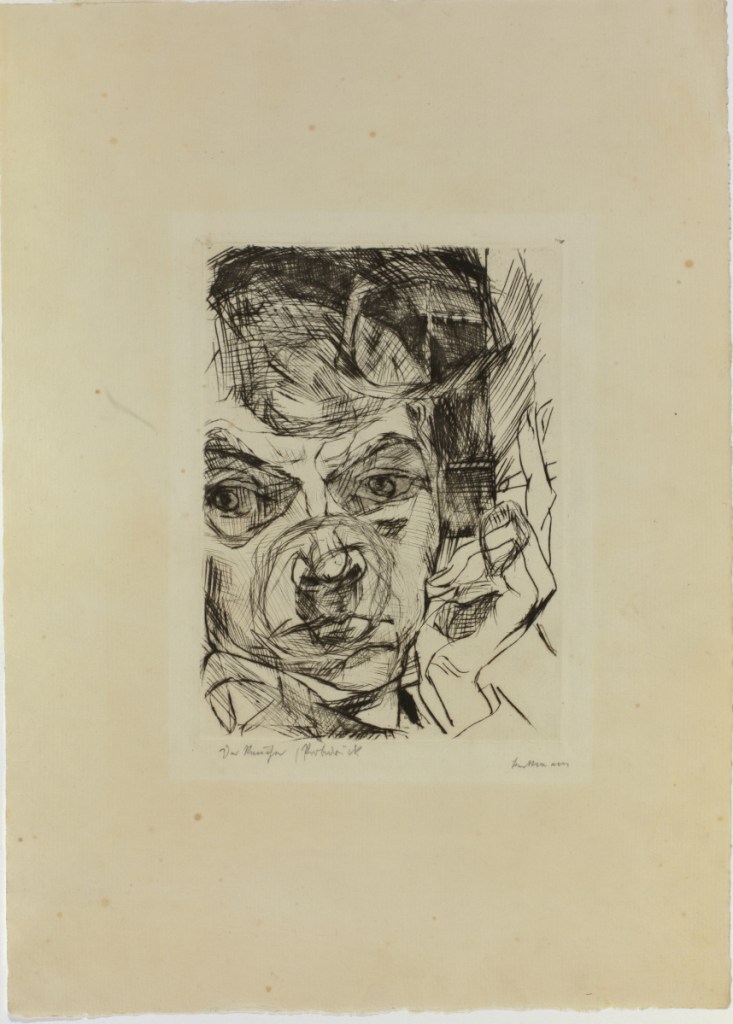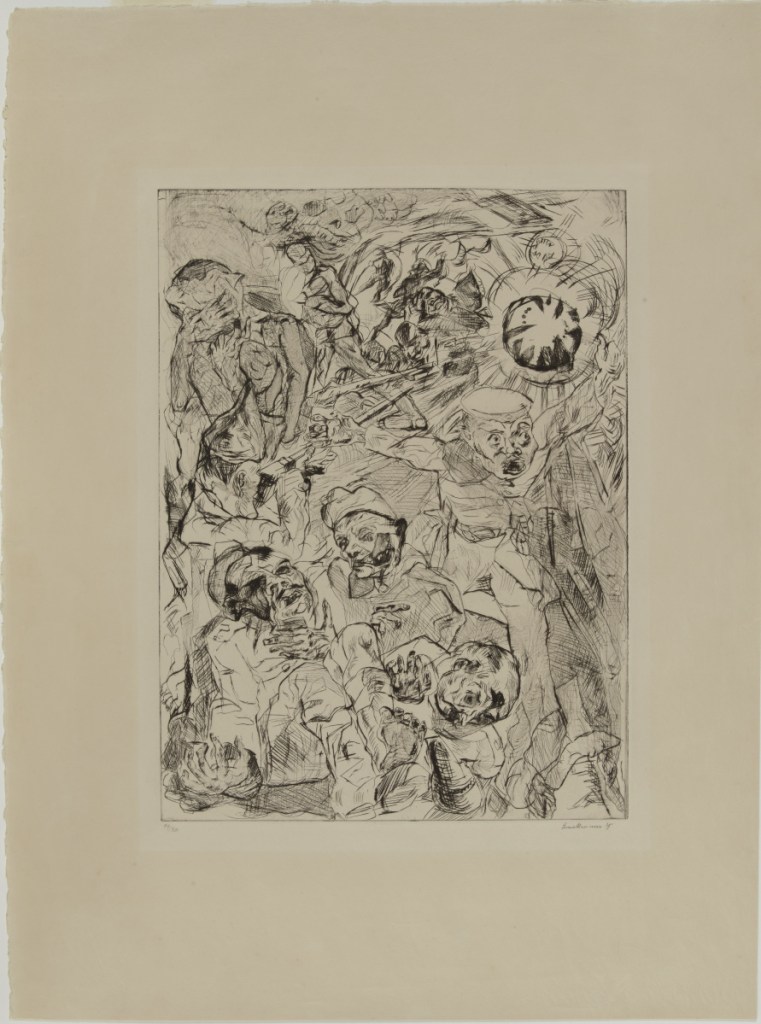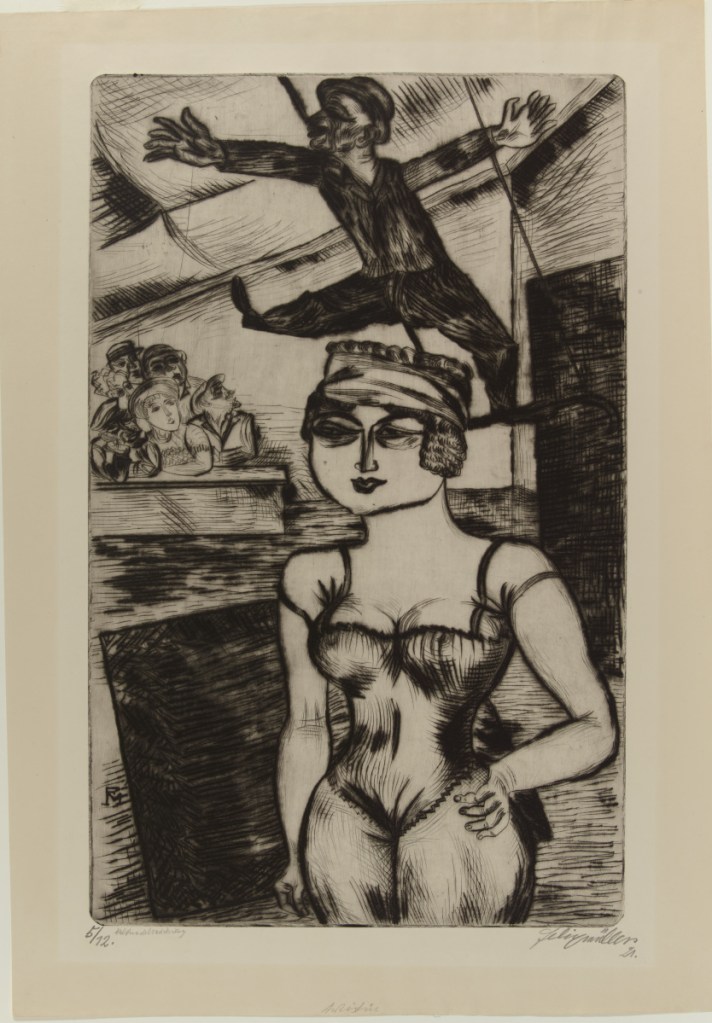Although she is closely associated with one of the great modern artists in American and Maine art history, Norma Boom Marin has always collected art based on her own personal tastes and likes. Marin, the widow of John Marin Jr. and daughter-in-law of the painter John Marin, began collecting German Expressionist prints after her husband died in 1988. Now, she’s giving 28 of those prints to the Colby College Museum of Art in Waterville.
“This gift is such an expression of her commitment not just to the Colby College Museum of Art, but her commitment to the landscape of art in Maine,” said Sharon Corwin, director of the museum, which planned to make an announcement about the gift Wednesday.
Many of the 28 prints are brilliant or rare impressions, Corwin said, and include works on paper from German artists of the early 20th century, including Otto Dix and Ernst Ludwig Kirchner. There are five prints by Max Beckmann, a color lithograph by Emil Nolde and a drypoint print by Conrad Felixmüller. Colby will show the prints as its major summer show, beginning July 14.
Corwin declined to put a dollar value on the gift. Its greatest value to the museum, she said, is that “it expands in such important ways our commitment to modernism, and now offers us a global, transnational expression of that important moment in the early-20th century when artists were grappling with the war and other societal challenges and beginning to express their art in the new formal language of modernism.”
The collection enables the museum to present a fuller narrative of global modernism, expanding research opportunities across the curriculum, said Diana Tuite, curator of modern and contemporary art at Colby, who called the gift “serendipitous and sudden.” Last fall, Tuite borrowed prints from Marin by Beckmann and Dix to complement another exhibition. That led to conversations that resulted in the gift.
In a phone interview from her home on Cape Split in South Addison, Marin said she assembled the collection over time, making decisions about what to buy based on how the art made her feel. An early purchase was a print by Lyonel Feininger, which caught her eye at a large print fair in New York.
“It was quite abstract, and it was quite different, on yellowish kind of paper. It was a strong print, so I thought, ‘Gee, this is really good. I like it.’ And I just kept buying these prints, because I liked them very much. If I loved it, I bought it,” she said.
Norma Marin has been a benefactor of the museum for many years and serves as a life member of its Board of Governors. She and her late husband gave the museum many works by John Marin, and she has supplemented those early gifts with gifts of her own, including more than 150 photographs. The gift of German prints is the latest example of her unique tastes, Corwin said. “The thing about Norma, she has one of the most refined eyes out there. She sees art in such a unique way and has such visual acuity, she can put collections together that are rare in their uniqueness.”
The Marin family has deep Maine roots. John Marin first visited Maine in 1914, spending the late summer and early fall on a small island off Phippsburg in Casco Bay. He made near-annual trips to the midcoast and Down East until his death in 1953.
Selections from the museum’s Marin collection will be on view this summer as part of “Modern Wonder: The John Marin Collection,” an exhibition devoted to Marin’s career and the history of the Marin collection at Colby.
“Self and Society: The Norma Boom Marin Collection of German Expressionist Prints” will open July 14.
Send questions/comments to the editors.





